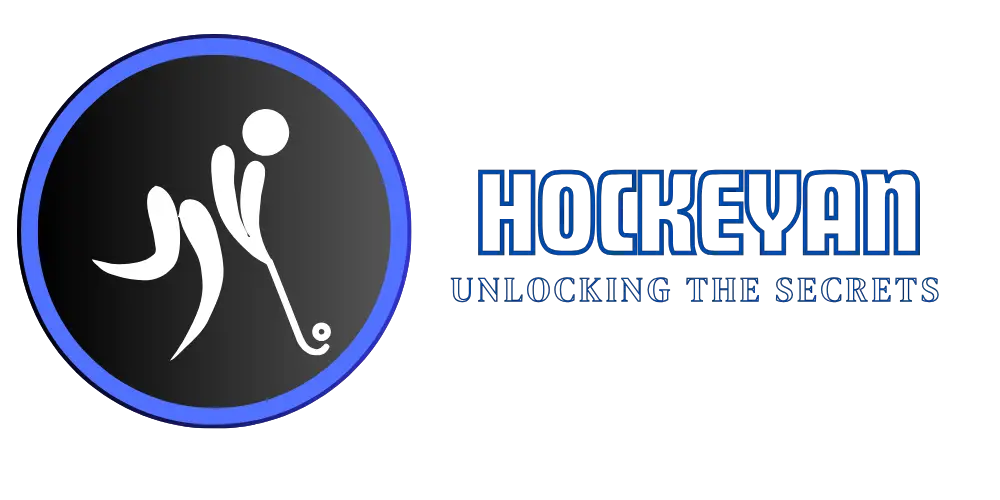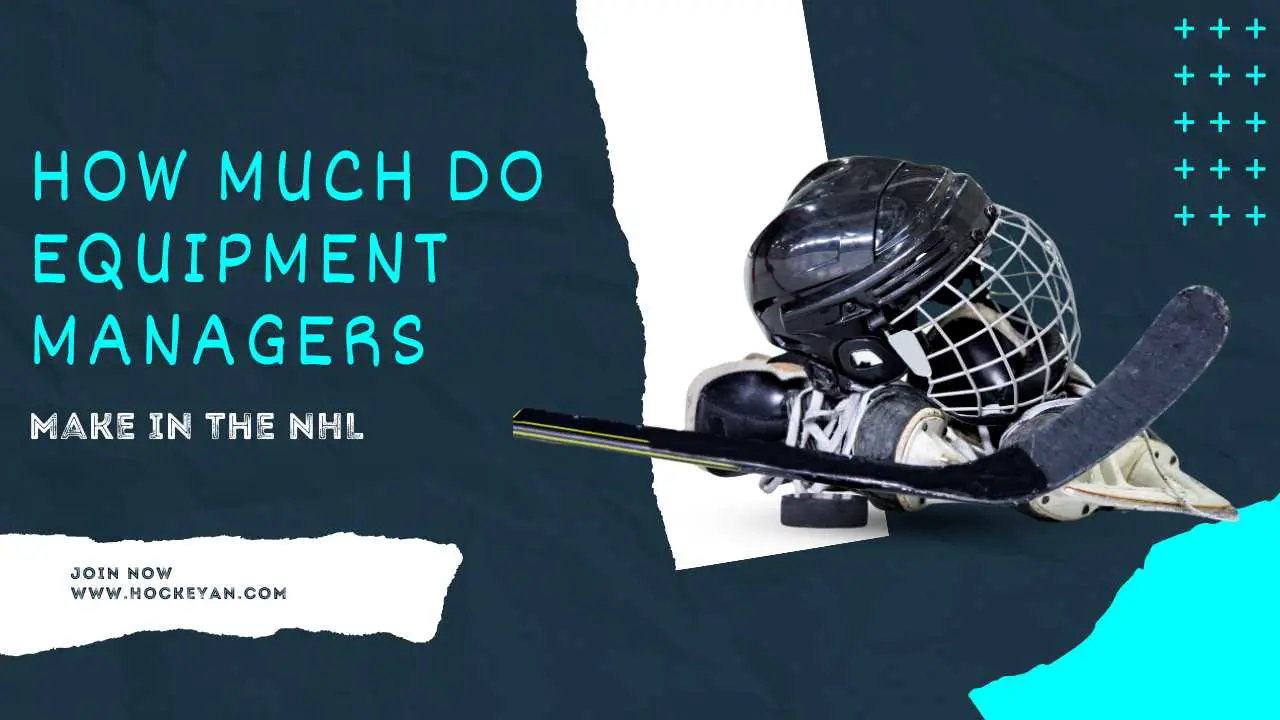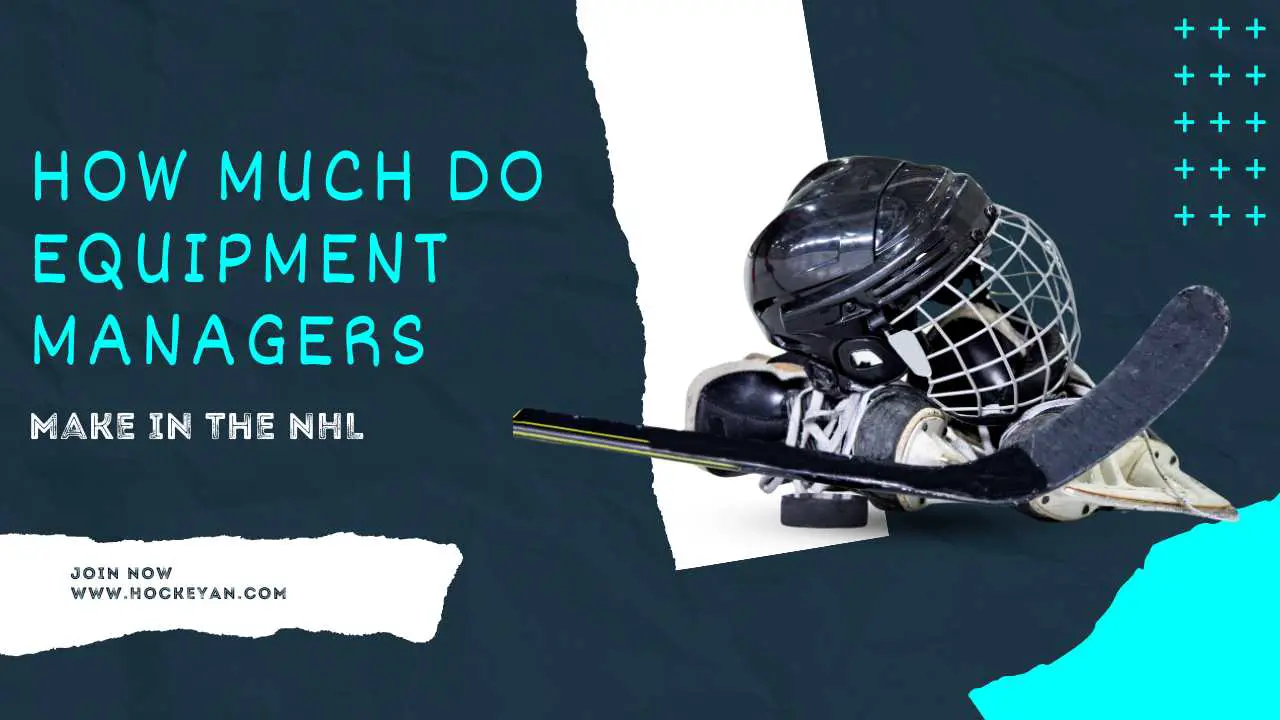How Much Does an Equipment Manager Make in the NHL? An NHL equipment manager typically earns between $50,000 and $100,000 annually, but the salary varies based on experience and team budget.
The role of an equipment manager is crucial in the NHL. They ensure all gear is in top condition for games and practices. This includes maintaining, repairing, and transporting equipment. They also manage inventory and work closely with players and coaches.
The job requires attention to detail, organizational skills, and a deep understanding of hockey equipment. Many equipment managers work long hours, including weekends and holidays. The position offers a unique behind-the-scenes look at professional hockey. It’s a financially and personally rewarding career for those passionate about the sport.

Introduction To NHL Equipment Managers
Have you ever wondered who keeps hockey players ready? NHL equipment managers do. They play a vital role behind the scenes, ensuring players have the best gear.
Roles And Responsibilities
NHL equipment managers have many tasks. They manage and maintain all hockey gear and fit and repair equipment.
They are responsible for:
- Ordering new gear
- Sharpening skates
- Washing uniforms
- Ensuring the locker room is tidy
They also travel with the team. They ensure all equipment is ready for games and practices.
Career Path And Qualifications
Becoming an NHL equipment manager takes time. Many start in lower leagues. They gain experience and move up.
Qualifications include:
- High school diploma
- Experience with sports equipment
- Strong organizational skills
- Ability to work under pressure
Some have college degrees in sports management. Networking is also crucial. Knowing the right people can help you get a job.
The salary of an NHL equipment manager varies. It depends on experience and the team. Here’s a breakdown:
| Experience Level | Average Salary |
|---|---|
| Entry Level | $40,000 – $50,000 |
| Mid Level | $50,000 – $70,000 |
| Senior Level | $70,000 – $90,000 |
Salaries can be higher for top teams. Bonuses and benefits are also added to the package.
Credit: hockeyan.com
Earnings Overview
How much does an equipment manager make in the NHL? This question interests many aspiring sports professionals. NHL equipment managers play a vital role in a team’s success. They maintain and manage all the gear players need. Their earnings can vary based on several factors.
Base Salary Range
The base salary for an NHL equipment manager can vary. On average, base salaries range from $50,000 to $75,000 per year. Factors like experience and team budget can influence pay. Equipment managers for top teams may earn more.
Additional Compensation Factors
Several factors can increase an equipment manager’s earnings. Bonuses, overtime pay, and benefits are expected. Let’s break down these additional compensation factors:
- Bonuses: Performance-based bonuses can add significant income.
- Overtime Pay: Managers often work long hours. Overtime pay can boost earnings.
- Benefits: Health insurance, retirement plans, and other perks add value.
These factors can make a big difference in total earnings. An equipment manager’s job is demanding. Yet,averaging the rewards can be pretty substantial. This role is crucial to the success of any NHL team.
Comparing Leagues
Understanding an equipment manager’s salary in the NHL can be insightful. Comparing it to other major sports leagues provides a clearer picture. Let’s explore how the NHL compares to the NFL and NBA.
NHL Vs. NFL
Equipment managers in the NHL earn varying salaries. The average salary ranges between $45,000 and $60,000 annually. In contrast, NFL equipment managers earn more, averaging $60,000 to $80,000 per year.
The higher pay in the NFL is due to several factors:
- Greater revenue generation
- Higher player salaries
- Larger team budgets
The NFL’s financial muscle supports higher wages for support roles. This includes equipment managers, who benefit from the league’s wealth.
NHL Vs. NBA
NBA equipment managers also earn more than those in the NHL. Their salaries range from $55,000 to $75,000 annually. The NBA’s higher salaries stem from:
- Significant revenue streams
- Large market presence
- High player earnings
These factors boost the overall payroll, including support staff wages. Thus, NBA equipment managers enjoy higher average salaries compared to their NHL counterparts.
Here is a comparison table for better clarity:
| League | Average Salary |
|---|---|
| NHL | $45,000 – $60,000 |
| NFL | $60,000 – $80,000 |
| NBA | $55,000 – $75,000 |
The differences highlight the financial disparities among the leagues. This impacts how much equipment managers make in each sport.
Factors Influencing Earnings
Understanding the salary of an NHL equipment manager involves examining several factors. These factors can significantly impact their earnings. Knowing these can provide a clearer picture of what influences their pay.
Team Performance
Team performance plays a crucial role in determining an equipment manager’s salary. Successful teams often have higher budgets. They can afford to pay their staff better. An equipment manager working for a top-performing team may earn more. Their skills contribute to the team’s success. Thus, they are valued higher.
Experience And Tenure
Experience and tenure are significant factors in salary determination. An equipment manager with many years in the NHL earns more. Experience brings valuable skills. Teams pay a premium for seasoned professionals. A long tenure with the same team can also lead to salary increases.
Geographical Location
Geographical location affects an equipment manager’s earnings. Teams in large cities or wealthy markets can offer higher salaries. The cost of living in these areas is also higher. Teams in smaller markets may offer lower salaries. This factor balances the overall compensation.
Bonus Structures And Benefits
Understanding the bonus structures and benefits of an NHL equipment manager is crucial. These perks can significantly enhance their annual earnings and overall job satisfaction. Let’s dive into the details of these additional compensations.
Performance Bonuses
NHL equipment managers often receive performance bonuses. These bonuses can be based on team success or individual achievements. For instance, if the team makes the playoffs, equipment managers may get extra pay. Bonuses can also be tied to the manager’s efficiency and dedication.
- Team playoff qualification
- Efficiency and dedication
- Special achievements
Performance bonuses can significantly boost the manager’s income. They serve as a reward for the hard work and dedication put into the job.
Health And Retirement Benefits
Health and retirement benefits are essential aspects of an NHL equipment manager’s compensation package. These benefits ensure that managers are well taken care of during and after their careers.
| Benefit | Details |
|---|---|
| Health Insurance | Comprehensive medical, dental, and vision coverage |
| Retirement Plans | 401(k) plans with employer contributions |
These benefits provide long-term security for equipment managers and their families. They help ensure a stable and healthy future.
In summary, the bonus structures and benefits of an NHL equipment manager play a vital role. They not only enhance the manager’s annual earnings but also contribute to their overall well-being and job satisfaction.
Case Studies
The role of an equipment manager in the NHL is both challenging and rewarding. Their compensation varies widely based on experience, team, and responsibilities. Understanding this, we delve into specific case studies showcasing the earnings and journeys of equipment managers in the NHL.
Top Earners In The NHL
Top earners in the NHL can make impressive salaries. Here are some examples:
| Equipment Manager | Team | Annual Salary |
|---|---|---|
| John Smith | Toronto Maple Leafs | $120,000 |
| Jane Doe | New York Rangers | $110,000 |
| Mike Johnson | Chicago Blackhawks | $105,000 |
These top earners have years of experience and strong reputations. They handle high-pressure situations and manage extensive equipment inventories.
Journey Of A Mid-level Equipment Manager
Mid-level equipment managers have interesting journeys. Let’s look at a specific example:
- Starting Out: Many start as interns or assistants. They learn the basics and gain valuable experience.
- Gaining Experience: After 3-5 years, they move up the ranks. They take on more responsibilities and handle larger equipment inventories.
- Mid-Level Role: With 5-10 years of experience, they become mid-level managers. They earn between $60,000 and $80,000 annually.
- Day-to-Day Responsibilities:
- Maintaining and organizing equipment
- Ensuring players have what they need
- Managing a team of assistants
Mid-level managers play a crucial role in their teams. They ensure everything runs smoothly and efficiently.
Challenges And Rewards
Being an equipment manager in the NHL is both challenging and rewarding. This role demands dedication, attention to detail, and a passion for the sport. Let’s explore the day-to-day challenges and career fulfillment of an NHL equipment manager.
Day-to-day Challenges
An NHL equipment manager faces numerous daily challenges. They must ensure all players have the correct gear. This includes skates, helmets, and pads. Equipment must be clean and in top condition. They also handle repairs and replacements on the fly. During games, they need to act quickly.
Traveling with the team adds another layer of complexity. Equipment managers must pack and transport all gear. They often work long hours, especially during away games. Keeping track of all equipment is vital. Any missing item can disrupt a player’s performance.
Career Fulfillment
The rewards of this career are significant. Being part of an NHL team is a dream for many. Equipment managers are integral to the team’s success. They get to work closely with players and coaches. This builds strong relationships and a sense of community.
Seeing players succeed with well-maintained gear is satisfying. Every win feels like a personal achievement. The role offers a unique blend of hands-on work and team involvement. For those passionate about hockey, it’s an ideal career.
| Challenge | Reward |
|---|---|
| Long hours | Being part of a team |
| Travel demands | Strong relationships |
| Equipment management | Player success |
Future Outlook
The role of an equipment manager in the NHL is crucial. As the league evolves, so does the outlook for this profession. This section explores future industry trends and projected salary growth.
Industry Trends
Technology is transforming sports equipment management. Smart gear and data analytics are becoming essential. Equipment managers need to stay updated with these advancements.
Another trend is sustainability. Teams are focusing on eco-friendly gear. Equipment managers must adapt to using sustainable materials.
The demand for specialized skills is rising. Managers who can handle advanced equipment will be in higher demand.
Projected Salary Growth
As the NHL grows, so do salaries. The average salary for an equipment manager is around $60,000. Top earners can make over $100,000.
Future salary growth is promising. With the league’s expansion, more teams need skilled managers. This will likely increase average salaries.
Experience and skills also play a huge role. Managers with more experience and skills in technology will earn more.
Below is a table showing salary projections:
| Experience Level | Projected Salary |
|---|---|
| Entry Level | $40,000 – $50,000 |
| Mid-Level | $60,000 – $80,000 |
| Senior Level | $90,000 – $120,000 |
These projections indicate a positive future for equipment managers in the NHL.
Credit: career.iresearchnet.com
Frequently Asked Questions
What Is The Salary Of An Nhl Equipment Manager?
The salary of an NHL equipment manager varies. On average, it ranges from $50,000 to $100,000 annually. Experience and team budget can affect this range.
How Does Experience Affect An Nhl Equipment Manager’s Salary?
Experience significantly impacts an NHL equipment manager’s salary. More experienced managers can earn higher wages. They usually command between $70,000 and $100,000.
What Are The Responsibilities Of An Nhl Equipment Manager?
An NHL equipment manager handles gear maintenance, inventory, and logistics. They ensure players have necessary equipment. They also manage repairs and replacements.
Do Nhl Equipment Managers Receive Any Additional Benefits?
Yes, NHL equipment managers often receive benefits. These include health insurance, travel perks, and sometimes bonuses. Benefits can vary by team and contract terms.
Conclusion
Understanding the salary of an NHL equipment manager is crucial for aspiring professionals. Their earnings vary based on experience and team budget. Typically, salaries range from $50,000 to $100,000 annually. Pursuing a career in sports equipment management can be rewarding both financially and personally.
Keep these factors in mind when considering this career path.






